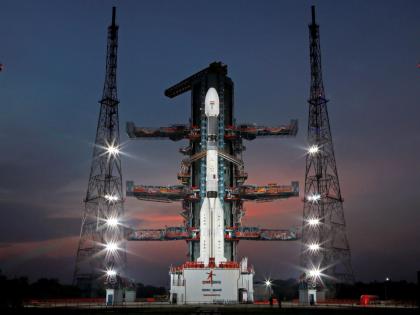ISRO Set for 100th Launch From Sriharikota: GSLV-F15 To Deploy NVS-02 Satellite
By Lokmat English Desk | Updated: January 24, 2025 17:04 IST2025-01-24T16:42:30+5:302025-01-24T17:04:19+5:30
The Indian Space Research Organisation (ISRO) is preparing for a milestone moment in India's space programme with its 100th ...

ISRO Set for 100th Launch From Sriharikota: GSLV-F15 To Deploy NVS-02 Satellite
The Indian Space Research Organisation (ISRO) is preparing for a milestone moment in India's space programme with its 100th launch from the Satish Dhawan Space Centre (SHAR) in Sriharikota. The GSLV-F15 mission is scheduled for January 29 at 6.23 am. The mission will deploy the NVS-02 satellite to further enhance India's Navigation with Indian Constellation (NavIC) system.
The GSLV-F15 is the 17th flight of the GSLV and the 11th flight with an indigenous cryogenic stage. It is the eighth operational flight of the GSLV featuring a fully indigenous cryogenic stage.
The launch will take place from the Second Launch Pad (SLP) in Sriharikota using a metallic payload fairing with a diameter of 3.4 meters.
Read Also | ISRO’s radar imaging satellite beams images of Mahakumbh mela from space
The NVS-02 satellite, part of the second generation of NavIC satellites, aims to strengthen India’s regional navigation system. NavIC, India’s indigenous regional navigation satellite system, provides accurate Position, Velocity, and Timing (PVT) services. It covers India and extends about 1,500 km beyond the country’s landmass. The system offers two service types: Standard Positioning Service (SPS) with an accuracy better than 20 meters and Restricted Service (RS) for specialized navigation needs.
The NVS-02 satellite weighs 2,250 kg and has a power handling capability of around 3 kW. It will carry navigation payloads in L1, L5, and S bands, along with a ranging payload in C-band. The satellite will be positioned at 111.75ºE to replace the IRNSS-1E satellite.
The satellite features both indigenous and procured atomic clocks for precise time estimation. It was developed at the UR Satellite Centre (URSC) and underwent rigorous testing to ensure its performance in space. The NVS series builds on ISRO’s previous achievements, with the NVS-01 satellite launched on May 29, 2023. NVS-01 was the first to carry an indigenous atomic clock.
This upcoming launch is not only a celebration of ISRO’s 100th mission from Sriharikota but also a significant step in India's growing space capabilities and development of advanced, indigenous navigation systems.
Open in app